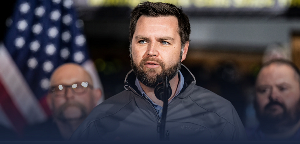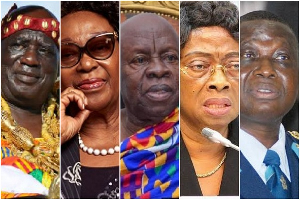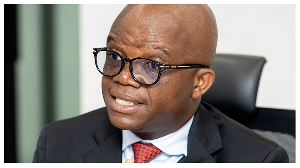The vice presidential candidates, J.D. Vance and Tim Walz, present starkly contrasting profiles that warrant examination.
Vance's multifaceted background as an author, entrepreneur, and Marine Corps veteran lends him a unique perspective on economic development, border security, and social conservatism. His commitment to challenging the status quo and offering innovative solutions resonates with voters seeking real change.
In contrast, Tim Walz's background as a coach, teacher, and politician raises questions about his preparedness for the vice presidency. While his experience in education may have taught him valuable skills in communication and leadership, it is unclear how this translates to the demands of the vice presidency.
Furthermore, his gubernatorial experience in Minnesota has been marked by controversy, including criticism of his handling of the COVID-19 pandemic and the George Floyd protests. Additionally, there have been reports of past personal incidents, including a 2006 arrest for driving under the influence.
Walz's ideology aligns with the far-left progressive agenda, including support for abortion legalization, LGBTQI activism, and radical environmental policies. These views are out of touch with the values of many Americans and may alienate voters who prioritize traditional values and limited government intervention.
Furthermore, Walz has faced criticism for his handling of the George Floyd protests, with some accusing him of being too soft on rioters and failing to maintain law and order. His administration has also been accused of corruption, with allegations of embezzlement and cronyism.
Moreover, Walz's leadership style has been described as weak and indecisive, leading to a lack of effective governance in Minnesota. As vice president, Walz's lack of experience in foreign policy, national security, and economic development could be a liability. His coaching and teaching background may not have prepared him for the diplomatic and strategic demands of the vice presidency. Additionally, his progressive ideology may lead to divisions within the party and alienate moderate voters.
J.D. Vance and Tim Walz share some similarities in their backgrounds, but Vance's unique blend of experiences makes him a stronger candidate for vice president. Both Vance and Walz have served in the military, with Vance serving in the Marine Corps and Walz serving in the National Guard. This shared experience demonstrates their commitment to public service and their ability to work under pressure.
Additionally, both candidates have a background in writing and communication. Walz was a teacher and coach, while Vance is a bestselling author. This shared experience highlights their ability to convey complex ideas and inspire others. However, Vance's writing background has focused more on storytelling and conveying complex ideas through books and essays. This has helped him develop a unique perspective and voice, which could be beneficial in a vice presidential role.
Furthermore, Vance's experience as a senator has given him valuable insight into the complexities of governance and policy implementation. His commitment to challenging the status quo and offering innovative solutions resonates with voters seeking real change. It's worth noting that Vance has faced unsubstantiated allegations, including claims of being a "carpetbagger" due to his recent move to Ohio and rumors of past business dealings gone sour. Despite these unproven claims, Vance's commitment to economic growth, border security, and social conservatism makes him a strong candidate for vice president.
In contrast, Walz's background, while impressive, may not have prepared him for the demands of the vice presidency. His teaching and coaching experience, while valuable, may not have given him the same level of expertise in areas such as foreign policy, national security, or economic development.
While experience is certainly important, it's not the only factor to consider when evaluating a candidate's qualifications. In this case, J.D. Vance's youth and relative inexperience can be seen as a strength rather than a weakness. His fresh perspective and new ideas can bring a much-needed injection of energy and innovation to the political landscape.
Additionally, Vance's experience in the private sector, as an entrepreneur and author, has given him a unique understanding of the needs of working-class Americans and the importance of economic growth. While Tim Walz's seniority and experience in government are certainly valuable, they also come with their own set of limitations. Walz's long tenure in government may have made him more entrenched in the status quo and less likely to challenge the existing power structures.
Furthermore, Vance's youth and inexperience can also make him less beholden to special interests and more willing to take risks and challenge conventional wisdom. Ultimately, the question is not just about who has more experience, but about who has the right combination of skills, ideas, and perspective to lead the country forward. And in this case, Vance's unique blend of experiences and qualities makes him a strong candidate for vice president.
In conclusion, the contrast between Vance and Walz is stark. Vance offers a fresh perspective, a commitment to economic growth and job creation, and a strong understanding of the needs of working-class Americans. Walz, on the other hand, is marred by numerous scandals, an out-of-touch ideology, and a lack of effective leadership. His coaching and teaching background may not have prepared him for the demands of the vice presidency, and his progressive ideology may have led to divisions within the party.
The choice between Vance and Walz is clear for voters who prioritize traditional values, economic growth, and limited government intervention. Vance's unique blend of experiences, including his military service, writing background, and senatorial experience, make him a stronger candidate for vice president. His commitment to challenging the status quo and offering innovative solutions, combined with his ability to convey complex ideas and inspire others, make him the better choice for voters seeking real change.
Ultimately, the decision between Vance and Walz will depend on what voters value most in a vice presidential candidate. If they prioritize experience and a traditional approach to governance, Walz may be the better choice. However, if they prefer a fresh perspective, a commitment to economic growth, and a willingness to challenge the status quo, Vance is the clear winner.
Opinions of Friday, 9 August 2024
Columnist: Nana Yaw Boakye Yiadom Opoku Agyemang



















